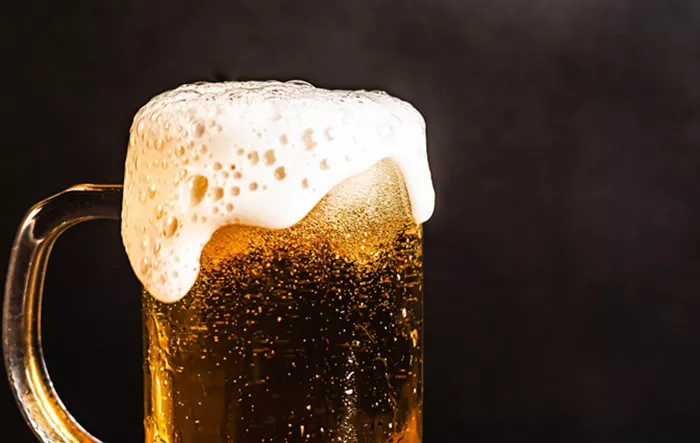At the U.N. climate talks in Baku, Azerbaijan, Singapore’s delegation is making a splash with its unique offering: FREE beer made from recycled wastewater. The pilsner, named NEWBrew, has garnered attention not only for its refreshing taste but also for its role in raising awareness about water sustainability and innovative recycling practices.
Packaged in vibrant pastel cans adorned with solar panels and cityscapes, NEWBrew is more than just a novelty drink. It is a conversation starter about the global water crisis and the innovative ways Singapore is addressing water scarcity. Delegates were initially surprised by the beer’s unusual origin. “I didn’t know. I was really surprised,” said Ignace Urchil Lokouako Mbouamboua, a conference attendee who quickly became a fan after trying the beer. “I can even suggest they make more and more of this kind of beer,” he added after sampling it for several consecutive days.
NEWBrew is made using NEWater, Singapore’s term for treated wastewater, reflecting the city-state’s commitment to sustainable water management. Facing limited natural water resources and increasing demand, Singapore has invested heavily in water recycling technologies. The beer is part of a broader effort to normalize the use of recycled water, especially as climate change creates uncertainty around global water availability.
“It’s part of the acceptance of the use of recycled water, which is, in general, a difficult topic,” said Ong Tze-Ch’in, chief executive of Singapore’s Public Utilities Board (PUB). The PUB partnered with local brewery Brewerkz to create NEWBrew, which first debuted at the Singapore International Water Week in 2018. Since then, the beer has become an ambassador for water recycling, appearing at conferences and trade shows worldwide. Ong recalls the initial skepticism surrounding the product but notes the positive shift in public perception over time.
In Singapore, drinking NEWater is a common practice, with public education campaigns and visible endorsements from public figures helping to ease concerns. While drinking recycled water may still be a hard sell for international visitors, many conference delegates are warming to the idea, especially as the beer quenches their thirst in the Baku heat.
Pat Heslop-Harrison, who sampled the beer without knowing its origin, commented, “It’s fresh and not so bitter.” Meanwhile, Julian Reingold, a delegate from Athens, joked, “If we were to drink more of this beer, I don’t know how the negotiations would turn out. Maybe it would be for the best!”
Despite the lighthearted banter around the beer’s “sewage” origins, the serious issue of water scarcity remains front and center. According to the Intergovernmental Panel on Climate Change (IPCC), nearly half of the world’s population faces limited access to clean water at least part of the year, and climate change is exacerbating this challenge with more intense droughts and floods.
Singapore has long recognized the need for comprehensive solutions to water scarcity. Through a combination of desalination, catchment systems, and innovative water recycling methods, the country is working to double its water supply by 2065.
The introduction of NEWBrew at COP29 is not just about showcasing an innovative product; it is about changing global perceptions of recycled water. As public understanding of water reuse grows, experts like Saroj Kumar Jha, director of the World Bank’s global water department, suggest rebranding “wastewater” as “used water” to shed its negative connotations.
Wee-Tuck Tan, managing director of Brewerkz Group, revealed that the brewery produces over 5,000 liters—roughly 15,000 cans—of NEWBrew for each edition. At around 7 Singapore dollars per can outside the conference, NEWBrew represents a significant investment in both production and changing public attitudes. Tan believes that by packaging recycled water in the form of beer, people’s mindset shifts, with most unable to tell the difference in taste.
As COP29 continues, delegates sip from their pastel cans, enjoying the unusual but effective climate message. If the humor, conversation, and taste of NEWBrew can spark a broader discussion about water sustainability, this “sewage beer” may prove to be the most memorable takeaway from the conference.
You Might Be Interested In:


